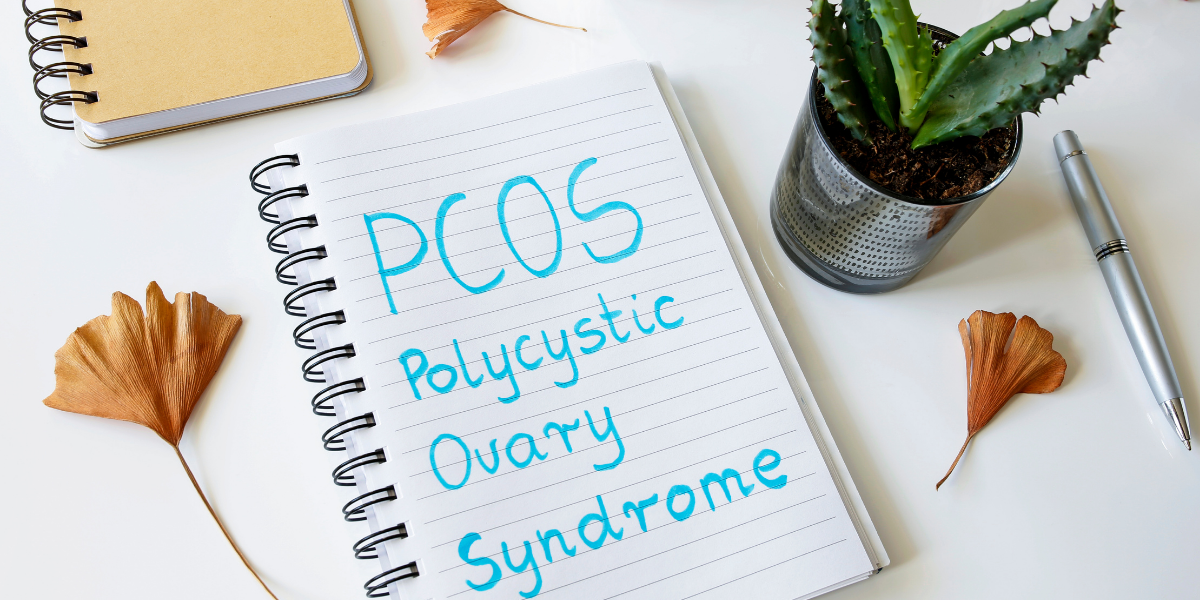Polycystic Ovary Syndrome is a complex condition that affects up to 10% of women in North America.
Its characterization varies but could include excessive amounts of male sex hormones ( androgens), disrupted periods and cysts on the ovaries.
PCOS is a leading cause of fertility issues in women and, in some cases, is also characterized by insulin resistance.
In today’s article I discuss three specific and widely available supplements that women living with PCOS may benefit from.
Let’s get right to it.
Myo-Inositol (MI)
Myo-Inositol is a naturally occurring compound (technically a sugar alcohol) that our bodies make naturally but is also available to us via a limited number of foods and in supplemental form.
It’s a topic of interest in the world of PCOS because it plays a physiological role as a signalling molecule that impacts insulin and other relevant hormones such as FSH (follicle stimulating hormone).
In fact, a 2018 systematic review and meta-analysis out of the Clinical Nutrition journal found that inositol supplementation can improve insulin sensitivity.
These findings were confirmed specifically in the context of PCOS via a 2017 meta analysis out of the Endocrine Connect journal which found that myo-inositol may also slightly reduce testosterone levels in women living with PCOS.
There is some evidence to suggest that myo-inositol supplementation may help restore ovulation in women with PCOS ( 1,2) and while it is thought to be a supplement that is effective at improving the chances of pregnancy, a recent Cochrane review labelled the evidence in this regard to be of low quality.
“Inositol is one of the supplements thought to increase the chance of getting pregnant. At the moment, we are unsure whether taking inositol will actually help these women get pregnant.”
Cochrane, 2018
N-Acetyl Cysteine (NAC)
NAC is a powerful antioxidant and biochemical precursor available in supplemental that pops up in various capacities in the world of women’s health – including as it relates to endometriosis and hypothyroidism.
A comprehensive review of experimental studies published in 2015 out of Obstetrics and Gynecology International found that women with PCOS who took supplemental NAC were more likely to restore ovulation and get pregnant than those who did not.
Although the quality of research is not necessarily the highest, there is also some suggestion that NAC offers similar protection against insulin resistance and high androgen levels as the commonly prescribed pharmaceutical metformin.
Psyllium Fibre
Psyllium fibre is a widely available soluble fibre supplement that is isolated from the Plantago genus of flowering plants.
Given it’s potent viscosity, it offers a number of physiological advantages and is quite well studied in the realms of IBS and blood cholesterol management.
As it relates to PCOS, the primary advantage of psyllium supplementation is its potential to improve insulin resistance.
The serving size required to achieve this effect is 1 tsp twice daily.
Soluble fibre rich foods, which I’ve written about previously, are also very effective at improving blood sugar control.
CoQ 10
CoQ10 is a naturally occurring compound that exists in our cell membranes and plays a role in modulating fundamental biological processes including mitochondrial functioning, energy & anti-oxidant production as well as blood flow.
It also happens to be one of the most popular supplements globally, as there is a great deal of research around its use in various capacities.
One such capacity is outcome improvement in the world of PCOS.
Multiple randomized controlled studies (1,2) have demonstrated CoQ10 has some potential to improve insulin resistance over an 8-12 week period in women living with PCOS, and may also have a modest role to play in reducing testosterone levels as well.
Because there is some suggestion that the mitochondrial activity of female eggs plays an important role in determining fertility, CoQ10 (which is involved in mitochondrial functioning) has also been explored a supplemental to improve fertility outcomes in certain contexts.
Curcumin
Curcumin is a potent anti-inflammatory compound found in turmeric and among the top selling supplements on platforms such as Amazon.
While better research is likely required to draw firm conclusions, a recent systematic review and meta-analysis out of the Nutrients journal offers some suggestion that curcumin may improve insulin resistance in women living with PCOS.
The studies cited in this review included curcumin dosages between 500-1500 mg daily over a 6-12 week period.
Final Thoughts
I hope you enjoyed today’s content, because there is much more where this came from as it relates to the world of dietary PCOS management.
I must also remind you there is a level of nuance associated with each of the supplements discussed above which makes today’s guidance best applied alongside the support of a professional.
If you are living with PCOS and require further support as it relates to your nutrition and supplementation, don’t hesitate to reach out about working one-on-one.
Today’s article is only the first in a multi-part PCOS series, so look out for my next installment which will take a closer look at the role of the micronutrients vitamin D, Omega-3, chromium, zinc and magnesium supplementation in PCOS.
Until then,
Andy De Santis RD MPH
Today’s article focused on non-vitamin/mineral topics, but as you will see in the piece below there are certain vitamins & minerals that are very important to be aware of for those living with PCOS.
Bonus Content – PCOS & Probiotics
There is a growing body of evidence that gut dysbiosis plays a role in the development of PCOS and recent studies have identified a potential role for probiotic supplementation as a potential alternative management strategy – you’ll have to read my article on the topic to learn more though.



